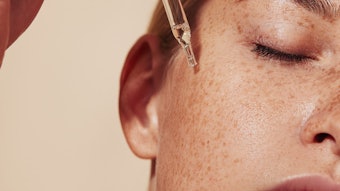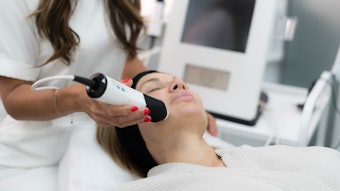
Skin longevity has a new weapon. Mibelle Biochemistry's new RejuveNAD technology naturally stimulates the endogenous regeneration of NAD+ by activating the enzyme NAMPT, thereby making the skin appear as much as eight years younger.
As detailed in the journal Nature, "NAD+ can directly and indirectly influence many key cellular functions, including metabolic pathways, DNA repair, chromatin remodeling, cellular senescence and immune cell function. These cellular processes and functions are critical for maintaining tissue and metabolic homeostasis and for healthy aging."
By boosting the "longevity molecule," NAD+, RejuveNAD is able to to optimize cellular processes to simultaneously address "at least" five of the 12 hallmarks of aging*, including mitochondrial dysfunction, cellular senescence, loss of proteostasis, epigenetic alteration and genomic instability.
By energizing mitochondria and promoting DNA repair, RejuveNAD is able to make the skin appear eight years younger within 42 days, per clinical studies cited by Mibelle Biochemistry.
NAD+'s role in various cellular processes has been long known, leading to its use in anti-aging supplements. However, NAD+ features poor molecular stability in cosmetics formulations, which prevents its uptake into skin cells. As a result, it has not been applied in topical cosmetics.
RejuveNAD, which is sourced from sunflower sprouts sustainably cultivated indoors, gets around this issue by stimulating NAD+ levels in the skin itself.
*The 12 hallmarks of aging are: genomic instability, telomere attrition, epigenetic alterations, loss of proteostasis, disabled macroautophagy, deregulated nutrient-sensing, mitochondrial dysfunction, cellular senescence, stem cell exhaustion, altered intercellular communication, chronic inflammation and dysbiosis.










